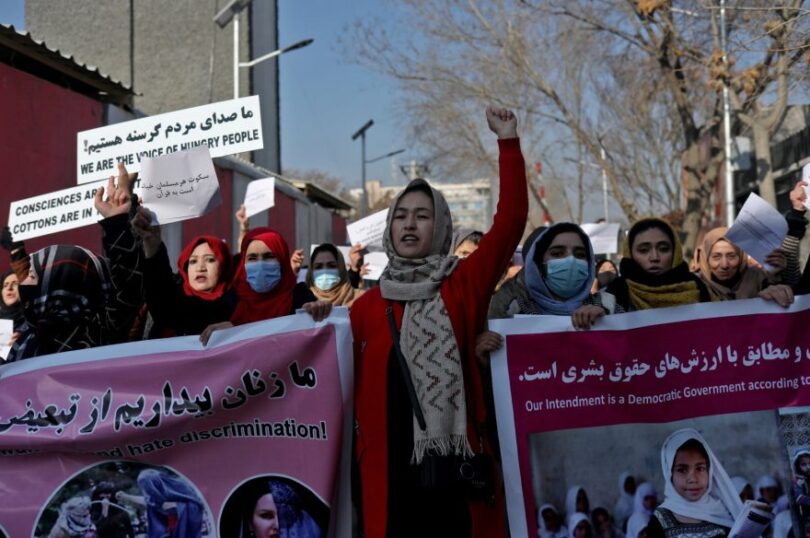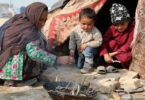KABUL (Agencies): The Taliban’s severe restrictions on women and their rights should be investigated as possible crimes against human rights, two top rights groups said on Friday.
In a recent report, Amnesty International and the International Commission for Jurists (ICJ) highlighted how Taliban restrictions on Afghan women’s rights and “imprisonment, enforced disappearance, torture and other ill-treatment” may qualify as gender persecution under the International Criminal Court.
The report entitled ‘The Taliban’s War on Women: The Crime against humanity of gender persecution in Afghanistan’ presents a detailed legal analysis of how the Taliban’s draconian restrictions on the rights of Afghanistan’s women and girls, together with the use of imprisonment, enforced disappearance, torture and other ill-treatment, could amount to the crime against humanity of gender persecution under Article 7(1) of the Rome Statute of the International Criminal Court (ICC).
Since the Taliban seized control in August 2021, rights have been severely curtailed, and the government has grown more totalitarian. As a result, women’s and girls’ access to education, work, travel and public appearance have all been constrained.
Both organizations urged the International Criminal Court to pursue legal action and include this crime in their ongoing inquiry into what is occurring in Afghanistan.
Additionally, they urged the country “to exercise universal jurisdiction” to prosecute the Taliban in accordance with international law. The report indicated that the Taliban have been holding, forcibly vanishing, and torturing women and girls who have participated in nonviolent protests. It also said the Taliban made them sign “agreements” or “confessions”, promising not to protest again.
“These are international crimes. They are organized, widespread, systematic,” said Agnes Callamard, Amnesty International secretary general. Meanwhile, she called on the international community to dismantle “this system of gender oppression and persecution.”
Amnesty has recorded instances of forcefully marrying women and girls to Taliban members and attempts to do so. According to the report, people who rejected such unions were “subjected to abduction, intimidation, threats, and torture.” The report cited the cases of two women: a 33-year-old female journalist and social activist who was forcibly married to a Taliban commander the following month and a 15-year-old girl who was forced to marry a Taliban figure in the northeastern province of Takhar in August 2021 despite the objections of her family.
“We simply cannot afford to fail the women and girls of Afghanistan,” said Canton of ICJ.







